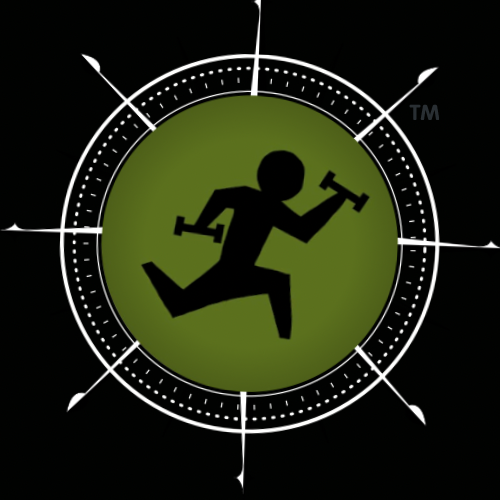Is Yoga Really Worth It? Yes. Here’s What the Science Says.
At Traveling Trainer, we get straight to the point. You want to know if yoga and breathwork are actually effective tools for burning calories, reducing stress and anxiety, and managing pain. We don’t offer fluff. We offer results backed by science and designed for real people with real demands.
Here are the most commonly asked questions about yoga and breathwork, answered with research and clarity. If you're looking for a practical, mobile solution that delivers both physical and mental health benefits, you're in the right place.
Does Yoga Burn Calories?
Yes. Yoga burns calories, supports weight loss, and builds lean muscle.
Even slow-paced forms of yoga like Hatha can burn between 120 and 200 calories per hour. More vigorous styles like Vinyasa or Power Yoga can increase that number to 400 to 600 calories per hour, depending on body weight and session intensity.
According to data from Harvard Health Publishing, a 155-pound person burns about 149 calories in 30 minutes of Hatha yoga. The calorie burn increases with more dynamic styles and added resistance training [Harvard Health, 2021].
Yoga also boosts metabolism, improves insulin sensitivity, and enhances recovery. Our Traveling Trainer yoga sessions often integrate resistance-based movements to maximize both strength and calorie burn.
Does Breathwork Reduce Stress?
Yes. Breathwork is one of the most effective, natural ways to relieve stress.
When you slow your breathing and control your breath pattern, you activate the parasympathetic nervous system, also known as the “rest and digest” state. This helps your body lower cortisol levels, reduce heart rate, and calm the mind.
A 2018 meta-analysis in Frontiers in Psychology found that slow breathing exercises significantly reduced perceived stress, heart rate, and blood pressure. Participants reported feeling more emotionally balanced and resilient after just a few sessions [Zaccaro et al., 2018].
Our breathwork programs are designed using these clinical insights to help you reduce stress quickly, whether you’re managing a high-pressure job or recovering from burnout.
Does Yoga Reduce Injury Risk?
Yes. Regular yoga practice reduces the risk of musculoskeletal injuries.
Yoga improves flexibility, balance, coordination, and proprioception. It also strengthens stabilizer muscles that support your joints and spine. These adaptations reduce the likelihood of injury from both daily movement and athletic performance.
A systematic review published in Sports Medicine showed that yoga can significantly decrease injury rates in athletes, office workers, and older adults by improving joint mobility and muscular balance [Gleeson et al., 2021].
Whether you're lifting weights or sitting at a desk for 8 hours, our Traveling Trainer yoga sessions protect your body where it matters most.
Does Breathwork Help with Anxiety?
Yes. Breathwork is clinically shown to reduce anxiety symptoms.
Controlled breathing techniques are proven to regulate the nervous system, quiet racing thoughts, and reduce symptoms of generalized anxiety disorder. Breathwork teaches your body how to self-regulate even under pressure.
In a 2020 randomized trial published in JAMA Psychiatry, participants practicing breath-focused interventions experienced anxiety relief comparable to those undergoing cognitive behavioral therapy (CBT) [Goldberg et al., 2020].
If you're dealing with anxiety in the workplace or at home, breathwork offers a powerful and drug-free method to take back control.
Does Yoga Help with Hip Pain?
Yes. Yoga helps relieve tight hips, improve mobility, and reduce hip pain.
Most hip pain is caused by tight hip flexors, weak glutes, and poor posture. Yoga addresses all of these factors through controlled stretching, strength-building, and posture correction.
A 2019 clinical study in Complementary Therapies in Clinical Practice found that yoga significantly reduced hip pain and improved function in participants with osteoarthritis after eight weeks of regular practice [Park et al., 2019].
Our private yoga sessions are designed to improve hip alignment and mobility without overloading your joints.
Does Yoga Help with Lower Back Pain?
Yes. Yoga is one of the most effective non-pharmaceutical treatments for lower back pain.
Yoga strengthens your core, stretches tight hamstrings, and improves lumbar spine mobility. These benefits relieve tension and restore healthy movement patterns. In many cases, yoga is more effective than standard care.
A major study in Annals of Internal Medicine showed that patients with chronic low back pain experienced better function and less pain after practicing yoga compared to those receiving usual medical treatment [Saper et al., 2017].
Whether your back pain comes from sitting too much or lifting improperly, our Traveling Trainer instructors know how to deliver yoga routines that are safe and targeted.
Final Takeaway: Yoga and Breathwork Work When Done Right
If you're asking whether yoga and breathwork work, the science says yes. They burn calories, reduce stress, relieve anxiety, and manage pain effectively. But like anything, results come from expert guidance and consistency.
At Traveling Trainer, we bring customized yoga and breathwork sessions directly to your home or office. No traffic. No crowds. Just expert-led programs that actually get results.
Ready to Feel Better?
Book your free introductory yoga or breathwork session today. Available across Massachusetts and Southern New Hampshire. Let us help you feel stronger, calmer, and more in control: wherever you are.

